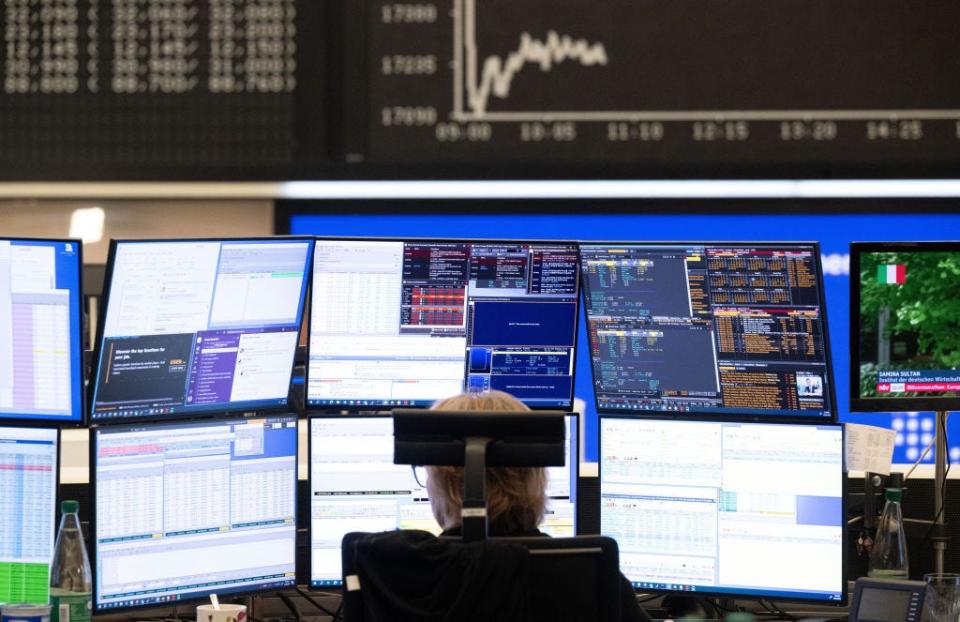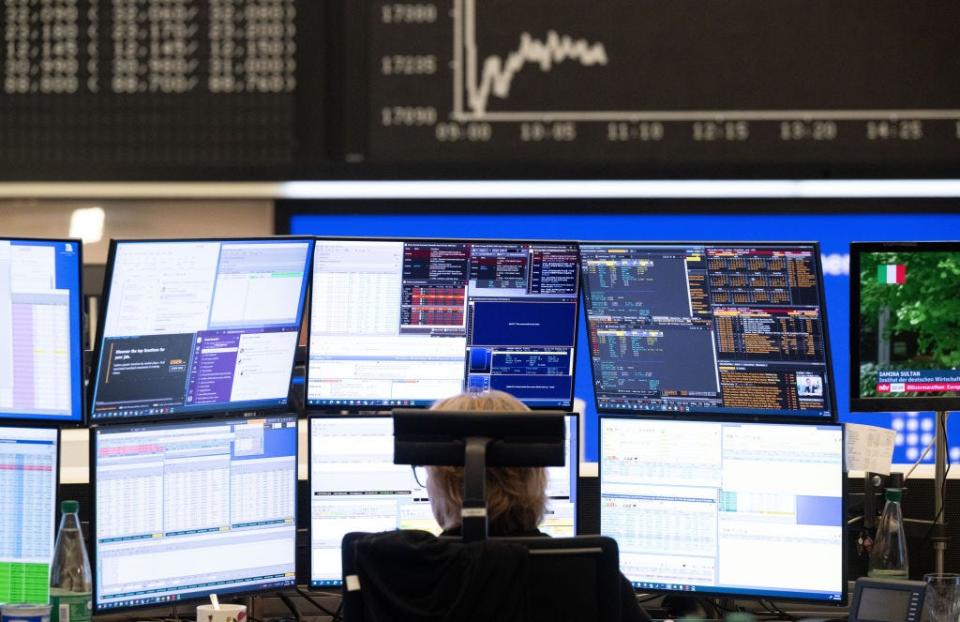
-
Stock markets worldwide are on the slide, with Japan’s Nikkei falling more than 12% on Monday.
-
Worse than-expected jobs data in the US last week fuelled recession fears and drove the sell-off.
-
August is often a “dangerous month,” said Jim Reid, a strategist at Deutsche Bank.
Investors started the week with a shock on Monday as Asian markets tumbled, European stocks followed, and US futures pointed to America continuing the trend.
In Japan, often considered Asia’s most important market, the benchmark Nikkei index dropped by more than 12% on the day, continuing a sell-off that started late last week.
It was sparked in part by Japan’s central bank decision to raise interest rates, strengthening the yen against the dollar, and rising investor fears of a US recession has also played a role.
To put it into context, a move of 2% in either direction for a major index like the Nikkei on any given day is substantial — meaning a 12% drop is huge.
“The overriding message from today is … hold on to your hats,” Jim Reid, a research strategist at Deutsche Bank, as Tokyo battled losses of a scale not seen in almost 40 years since the Black Friday crash of 1987.
Fears of a recession in the US jumped after significantly weaker-than-expected July jobs numbers on Friday, which also saw jobs numbers for June revised lower.
Those lower-than-expected numbers pushed up expectations of a deeper and faster cycle of interest rate cuts from the Federal Reserve, with markets now pricing in a 78% chance of a 0.5 percentage point cut from the Fed in September, Reuters reported.
‘Rapid, violent’ reaction
“Something of a perfect storm appeared on the horizon last week, with first a more hawkish than expected Bank of Japan, then a softer than expected US labour market report, barrelling into financial markets,” Michael Brown, an analyst at online brokerage Pepperstone said in an email Monday.
“The reaction has been rapid, violent, and extreme,” he said.
While Monday’s moves are substantial, several analysts have already suggested that markets are overreacting to last week’s news. This could be exacerbated by August often suffering some market volatility.
“August is often a dangerous month,” Reid said in a note to investors, “but with this one only being 2 and a bit business days old, we are seeing some astonishing moves already.”
“Markets were on edge before Friday but a weak payrolls has really escalated a profound move across the globe. However the reality is that although payrolls was disappointing it’s hard to know how disappointing given the distortions from Hurricane Beryl,” Reid wrote.
“It’s like the market has added up 2+2 and made 9. It’s easily possible we’ll get the additional 3 and 2 to make up the total but we’re certainly not there yet. It’s hard to believe such market moves would have occurred in any other month.”
Read the original article on Business Insider
EMEA Tribune is not involved in this news article, it is taken from our partners and or from the News Agencies. Copyright and Credit go to the News Agencies, email news@emeatribune.com Follow our WhatsApp verified Channel





